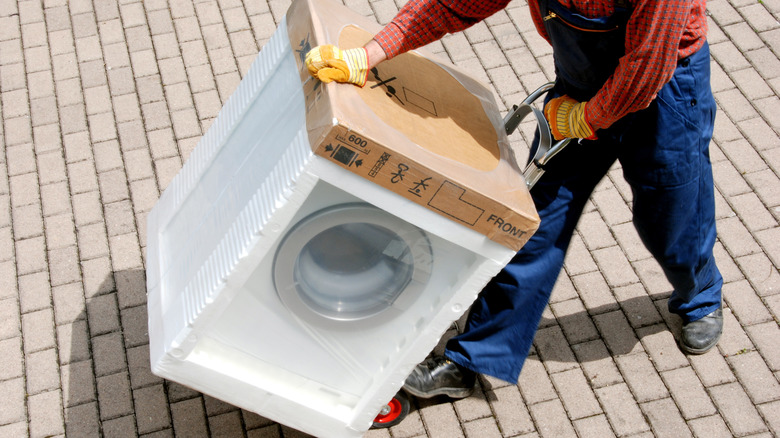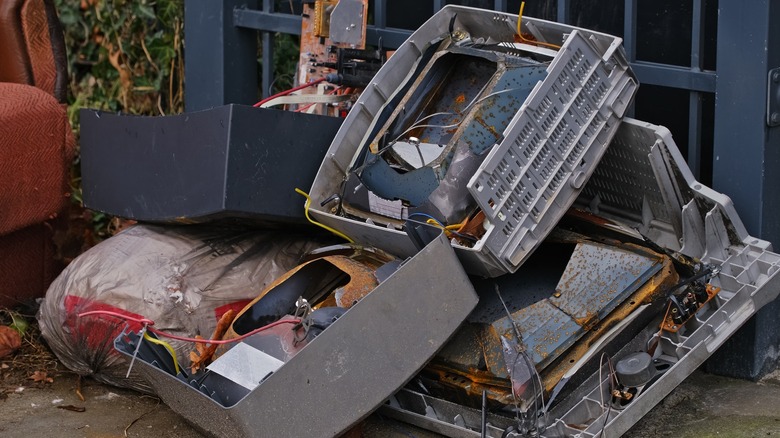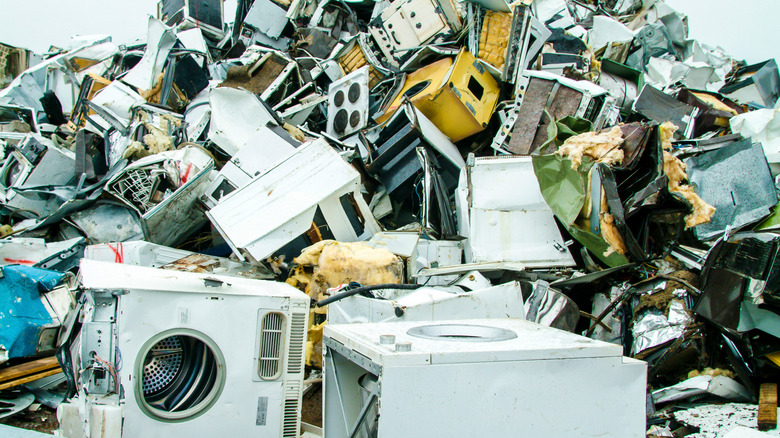How To Get Rid Of Your Old Washer And Dryer
Appliances are sadly not meant to last forever, which means you may eventually have a washer and dryer nearing the end of their lifespan. Unlike it is with other items in your home, it can be a bit trickier to get rid of old appliances such as washers and dryers. So, what do you do when you buy your new washer and dryer? If you don't have a friend or family member who wants your old appliance, then you need to check on your area's options for disposal or recycling. Depending on your location, the choices for either solution can vary.
The average lifespan of an appliance depends on factors such as use frequency and maintenance. Consumers can typically expect their washing machines to endure for 10 to 15 years, while dryers last an estimated 10 to 13 years. When the washer and dryer are in their last cycle, pun intended, you may not be able to legally throw them on the curb like you would an old Christmas tree or other household waste.
Disposing of the old washing machine and dryer
Local municipalities often have specific guidelines and ordinances regarding appliance disposal. Start on your city or town's website to search for any waste pickup instructions. While appliances aren't typically part of curbside pickup, many city governments offer "bulk pickup" or "bulk waste pickup" for large items such as refrigerators, washers, and other appliances. The website may feature a schedule or the ability to make an appointment specifically for bulk pickup of items that are too big or shouldn't go into your trash can, such as appliances. Some areas also operate a 311 number, or city hotline, where residents can ask questions about the disposal of large items.
It's important to follow all guidelines for large item removal set by your area. For instance, if you get rid of a well-loved washing machine because it's too old, you will need to drain any water before disposal and possibly remove the doors. Every city varies in its requirements, so read the rules carefully, or you might be subject to a fee for violation of city codes. Once you know when and how to get rid of the appliances, unplug and disconnect all hoses, or call a professional for assistance with a gas appliance.
Recycling your washer and dryer
If you think your washing machine and dryer still have a little life left in them, consider recycling the units. Your local recycling center may accept the appliances, so check on their approved items, and whether they do pickup. You can also check the websites of your local government and utility company for any affiliated recycling programs. Some retail stores, such as Best Buy, offer appliance recycling, with pickup for a nominal fee if you buy a new appliance.
Consider that in the United States, over 2 million tons of major appliances enter the landfill each year, according to the Environmental Protection Agency (EPA). Doing your part to recycle appliances means you're reducing your carbon footprint and limiting what you put in the landfill. Your decision isn't just a practical one, it's also eco-friendly, because appliances contain hazardous materials such as mercury and polychlorinated biphenyls, which could harm the environment if disposed of incorrectly.


